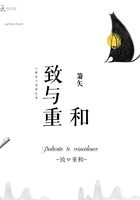The first thing which suggests itself to me, as I contemplate my slight project, is the liability of repeating in the evening what I may have said in the morning in one form or another, and printed in these or other pages. When it suddenly flashes into the consciousness of a writer who had been long before the public, "Why, I have said all that once or oftener in my books or essays, and here it is again; the same old thought, the same old image, the same old story!" it irritates him, and is likely to stir up the monosyllables of his unsanctified vocabulary. He sees in imagination a thousand readers, smiling or yawning as they say to themselves, "We have had all that before," and turn to another writer's performance for something not quite so stale and superfluous. This is what the writer says to himself about the reader.
The idiot! Does the ******ton really think that everybody has read all he has written? Does he really believe that everybody remembers all of his, writer's, words he may happen to have read? At one of those famous dinners of the Phi Beta Kappa Society; where no reporter was ever admitted, and which nothing ever leaks out about what is said and done, Mr. Edward Everett, in his after-dinner speech, quoted these lines from the AEneid, giving a liberal English version of them, which he applied to the Oration just delivered by Mr. Emerson:
Tres imbris torti radios, tres nubis aquosae Addiderant, rutili tres ignis, et alitis Austri.
His nephew, the ingenious, inventive, and inexhaustible. Edward Everett Hale, tells the story of this quotation, and of the various uses to which it might plied in after-dinner speeches. How often he ventured to repeat it at the Phi Beta Kappa dinners I am not sure; but as he reproduced it with his lively embellishments and fresh versions and artful circumlocutions, not one person in ten remembered that he had listened to those same words in those same accents only a twelvemonth ago. The poor deluded creatures who take it for granted that all the world remembers what they have said, and laugh at them when they say it over again, may profit by this recollection. But what if one does say the same things,--of course in a little different form each time,--over her? If he has anything to say worth saying, that is just what be ought to do. Whether he ought to or not, it is very certain that this is what all who write much or speak much necessarily must and will do. Think of the clergyman who preaches fifty or a hundred or more sermons every year for fifty years! Think of the stump speaker who shouts before a hundred audiences during the same political campaign, always using the same arguments, illustrations, and catchwords! Think of the editor, as Carlyle has pictured him, threshing the same straw every morning, until we know what is coming when we see the first line, as we do when we read the large capitals at the head of a thrilling story, which ends in an advertisement of an all-cleansing soap or an all-curing remedy!
The latch-key which opens into the inner chambers of my consciousness fits, as I have sufficient reason to believe, the private apartments of a good many other people's thoughts. The longer we live, the more we find we are like other persons. When I meet with any facts in my own mental experience, I feel almost sure that I shall find them repeated or anticipated in the writings or the conversation of others. This feeling gives one a ******* in telling his own personal history he could not have enjoyed without it. My story belongs to you as much as to me. De te fabula narratur. Change the personal pronoun,--that is all. It gives many readers a singular pleasure to find a writer telling them something they have long known or felt, but which they have never before found any one to put in words for them. An author does not always know when he is doing the service of the angel who stirred the waters of the pool of Bethesda. Many a reader is delighted to find his solitary thought has a companion, and is grateful to the benefactor who has strengthened him. This is the advantage of the humble reader over the ambitious and self-worshipping writer. It is not with him pereant illi, but beati sunt illi qui pro nobis nostra dixerunt, -Blessed are those who have said our good things for us.
What I have been saying of repetitions leads me into a train of reflections like which I think many readers will find something in their own mental history. The area of consciousness is covered by layers of habitual thoughts, as a sea-beach is covered with wave-worn, rounded pebbles, shaped, smoothed, and polished by long attrition against each other. These thoughts remain very much the same from day to day, from week to week; and as we grow older, from month to month, and from year to year. The tides of wakening consciousness roll in upon them daily as we unclose our eyelids, and keep up the gentle movement and murmur of ordinary mental respiration until we close them again in slumber. When we think we are thinking, we are for the most part only listening to sound of attrition between these inert elements of intelligence. They shift their places a little, they change their relations to each other, they roll over and turn up new surfaces. Now and then a new fragment is cast in among them, to be worn and rounded and takes its place with the others, but the pebbled floor of consciousness is almost as stationary as the pavement of a city thoroughfare.
It so happens that at this particular tine I have something to tell which I am quite sure is not one of rolled pebbles which my reader has seen before in any of my pages, or, as I feel confident, in those of any other writer.
If my reader asks why I do not send the statement I am going to make to some one of the special periodicals that deal with such subjects, my answer is, that I like to tell my own stories at my own time, in own chosen columns, where they will be read by a class of readers with whom I like to talk.















